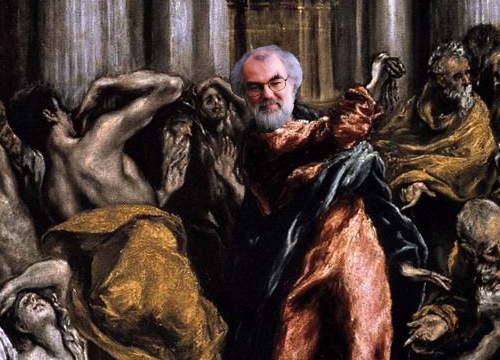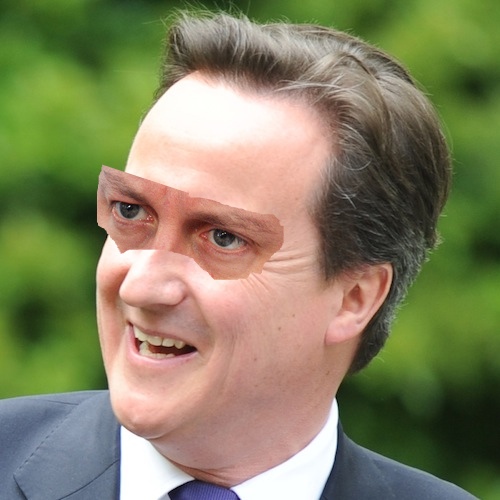I think it’s fascinating the way that, quite accidentally, the Church of England has been drawn into a debate about the state of capitalism. Because the protestors were not targeting the church; it was a pure accident of geography that a protest aimed at the Stock Exchange should end up camped around St Paul’s.
But that was how it turned out, and the church has been forced to take a position, and lots of commentators have been cheerfully picking out their favourite bible verses about camels going through the eye of a needle, and money-changers in the temple, and arguing about whether or not it makes any sense to call Jesus a socialist. And a lot of people who would not normally have any interest in the opinions of the Dean of St Paul’s or the Bishop of London are suddenly watching them very carefully and asking serious questions about the kind of relationship the church should have to wealth and power: always awkward ground for an established church which has the Queen as its head and an archbishop chosen by the Prime Minister.

And unexpectedly, the support for the protest by at least some of the staff of the Cathedral has given the protesters extra credibility. Because, after all, the protestors who turn up to these things are easy to mock, and their specific political aims, insofar as they have been articulated at all, are often a bit dubious; but the ham-fisted and divided way that the church handled the situation helped frame the debate as a moral question about inequalities of wealth and power.
But the next confrontation could be even more interesting. Now that the church has had a change of heart, the legal challenge to the protests comes from that strange entity called the City of London Corporation. At its most mundane level the Corporation is the local government for the ancient City of London, the ‘Square Mile’. But it is also a very weird historical anomaly. The Corporation has been around for a very long time — the oldest recorded charter, in 1067, confirmed rights and privileges that already existed — and over the centuries it has carved out a semi-detached relationship to the rest of the country; mainly because a succession of kings and governments were willing to make concessions in return for the financial support of the City.
And so, in the middle of what is nominally a modern democracy, we have a borough where corporations still have the vote, and the votes of actual human individuals are vastly outnumbered by the votes cast by businesses. That anachronism wouldn’t be particularly sinister if the Corporation confined itself to organising street-sweepers and mending the roads. But it is also a very wealthy organisation explicitly committed to lobbying for the interests of business, and particularly for the financial industry. It even has its own representative inside Parliament, the ‘City Remembrancer‘.
In other words, it is the perfect symbol for the influence of money over politics. Over many centuries, time and again, from autocratic kings to democratic governments, everyone has flinched in the face of the City’s power. The anomalous existence of the City of London is the result of a thousand years of regulatory capture.
That makes them an excellent focus for protests. If the protestors do manage to turn the spotlight on the Corporation, it could be interesting to watch.




